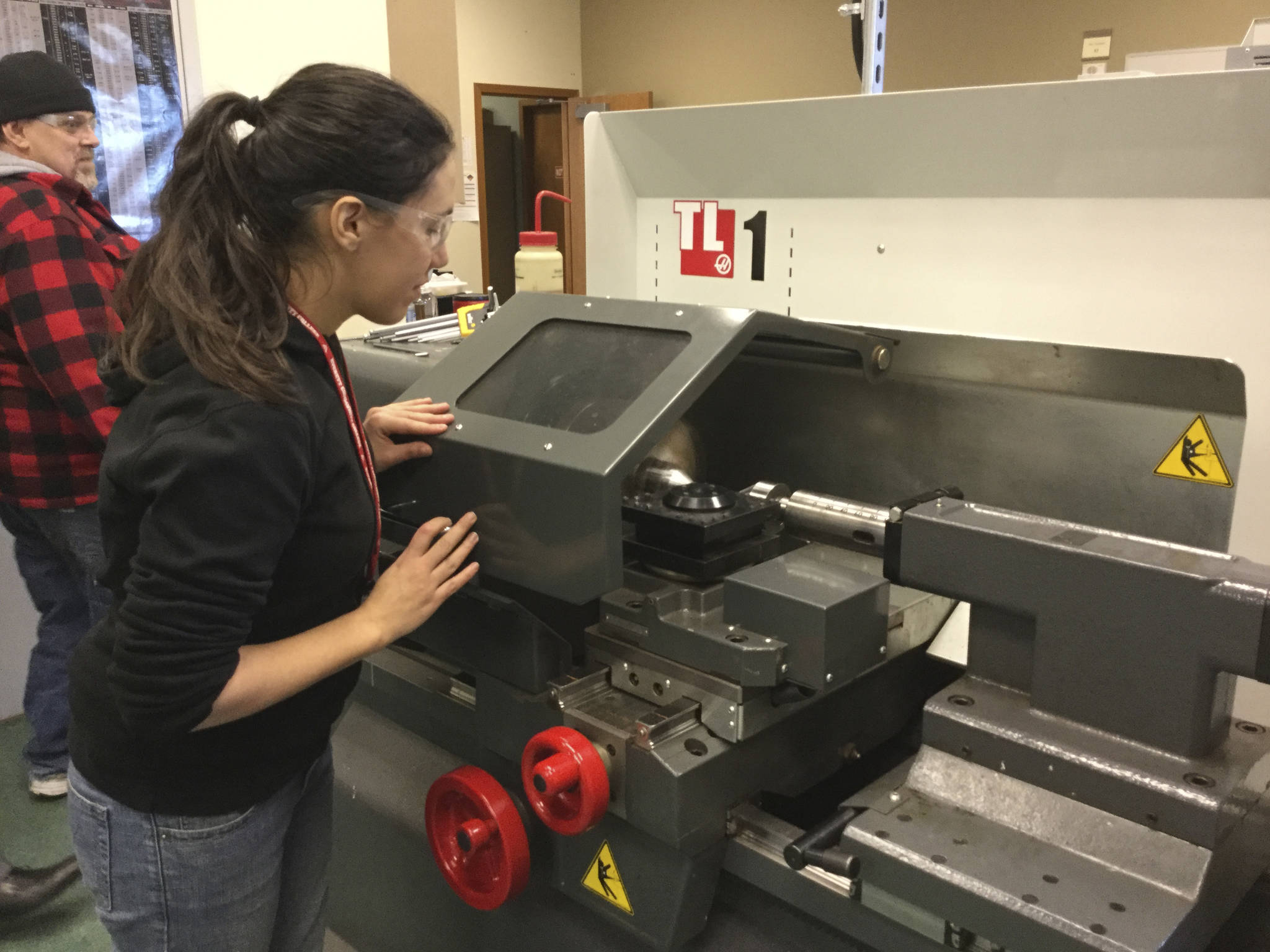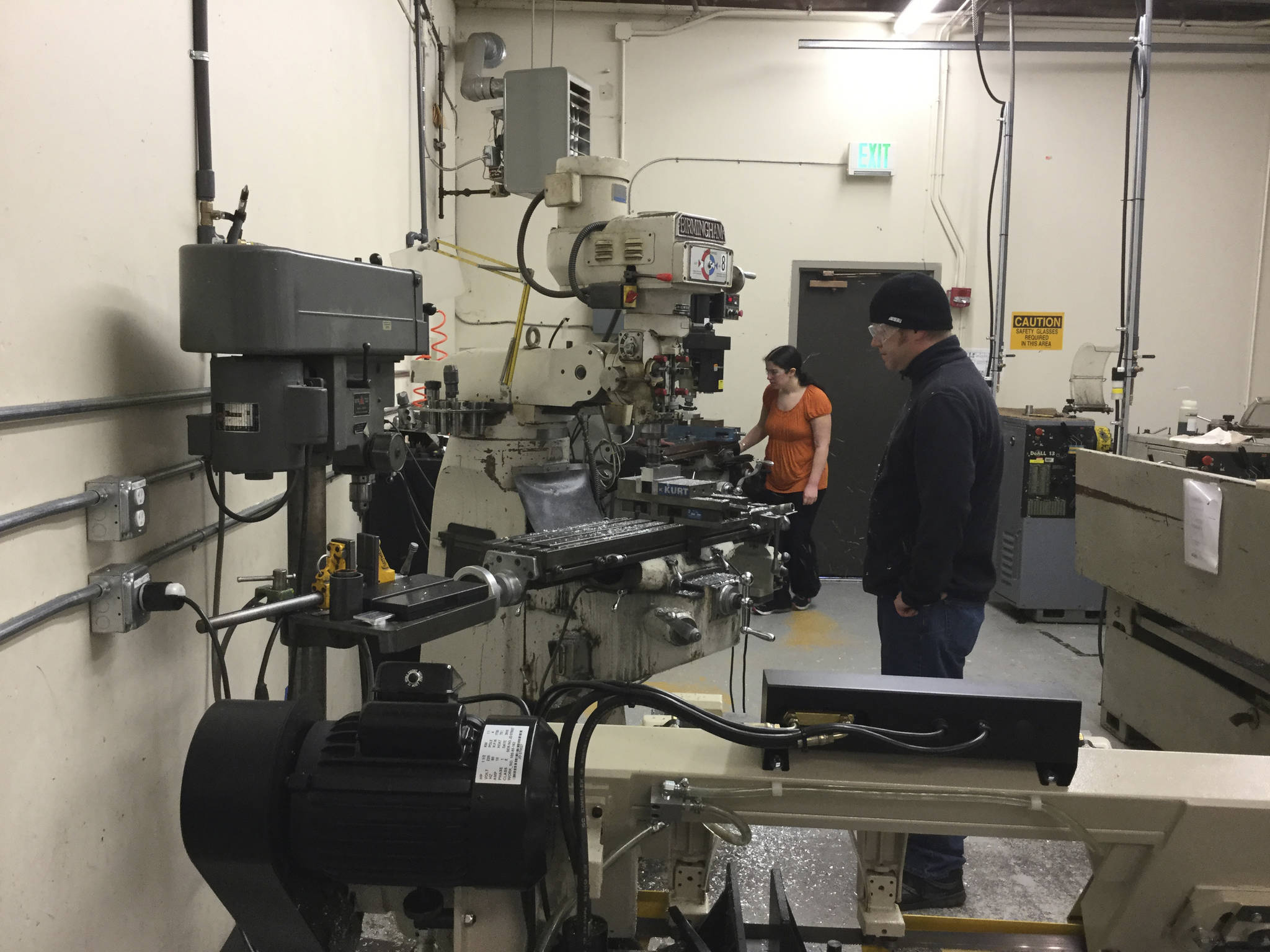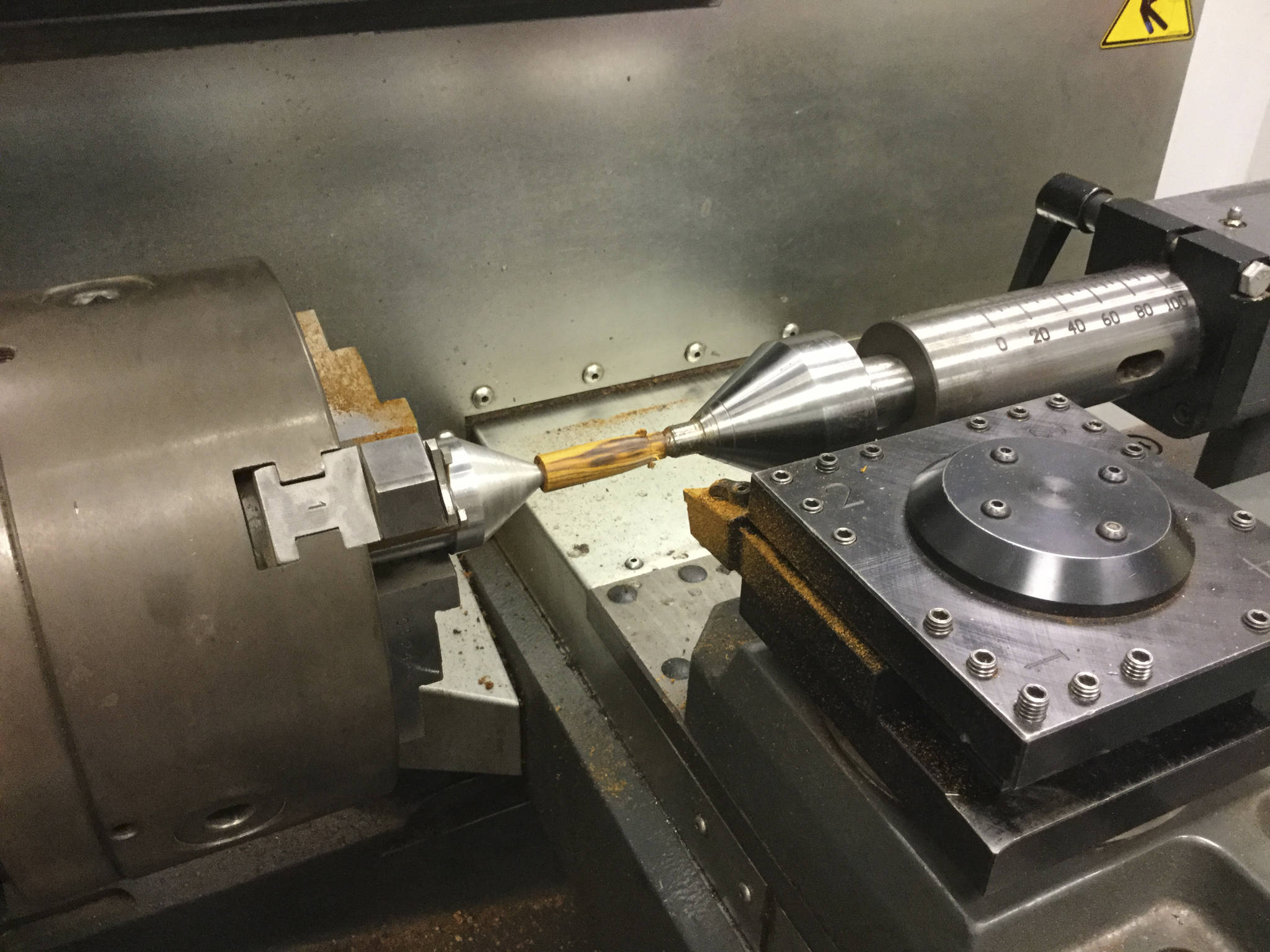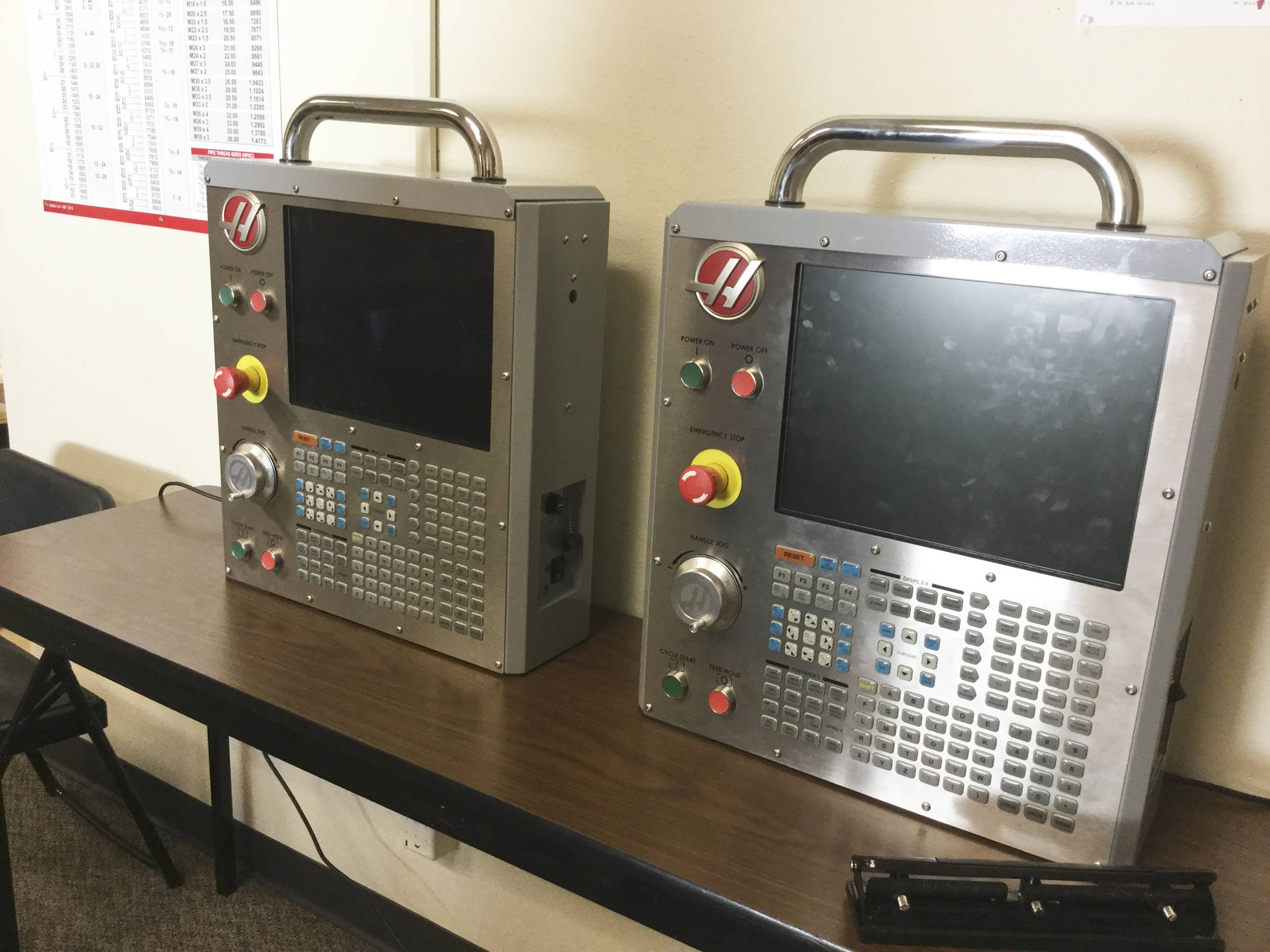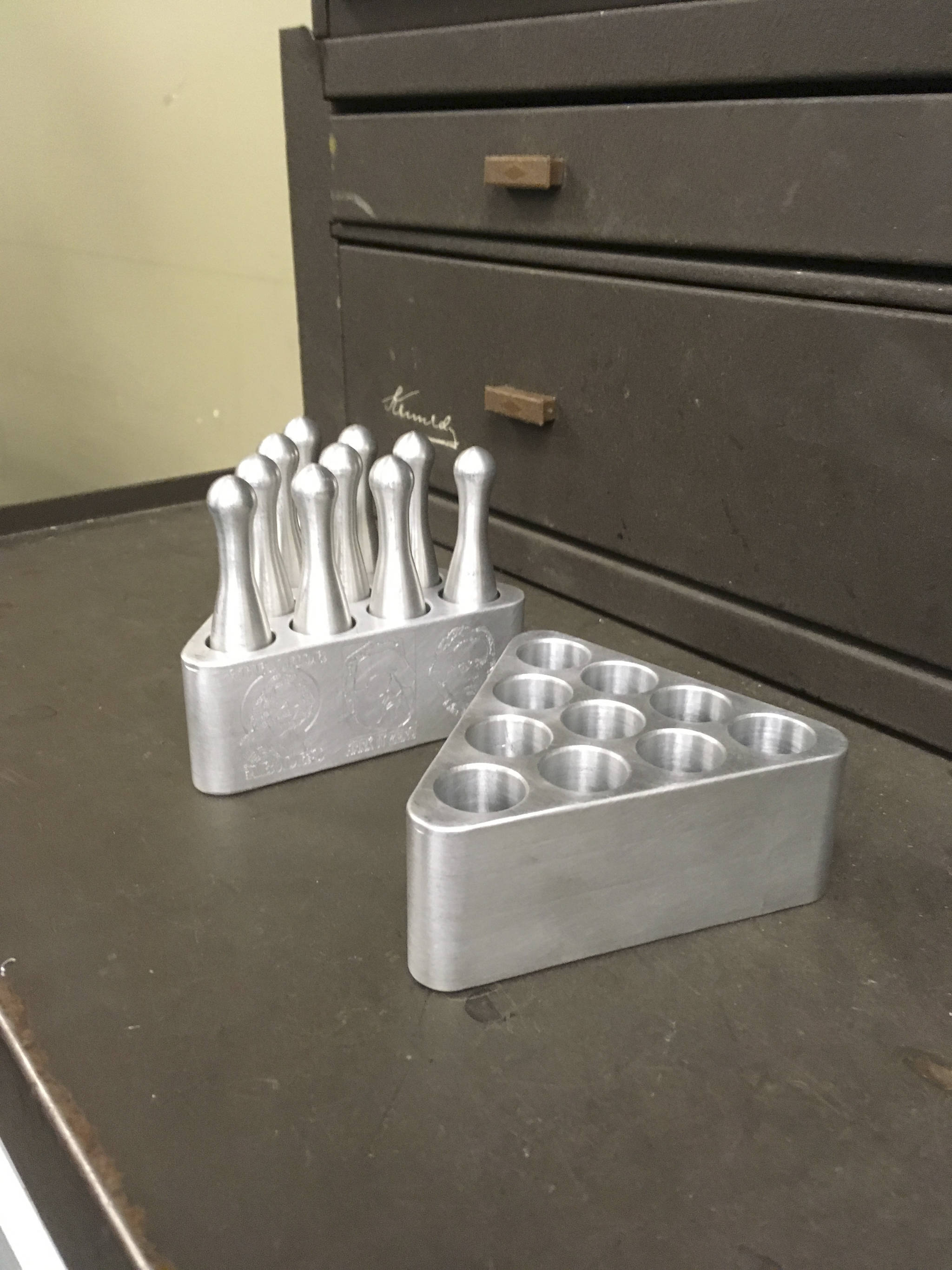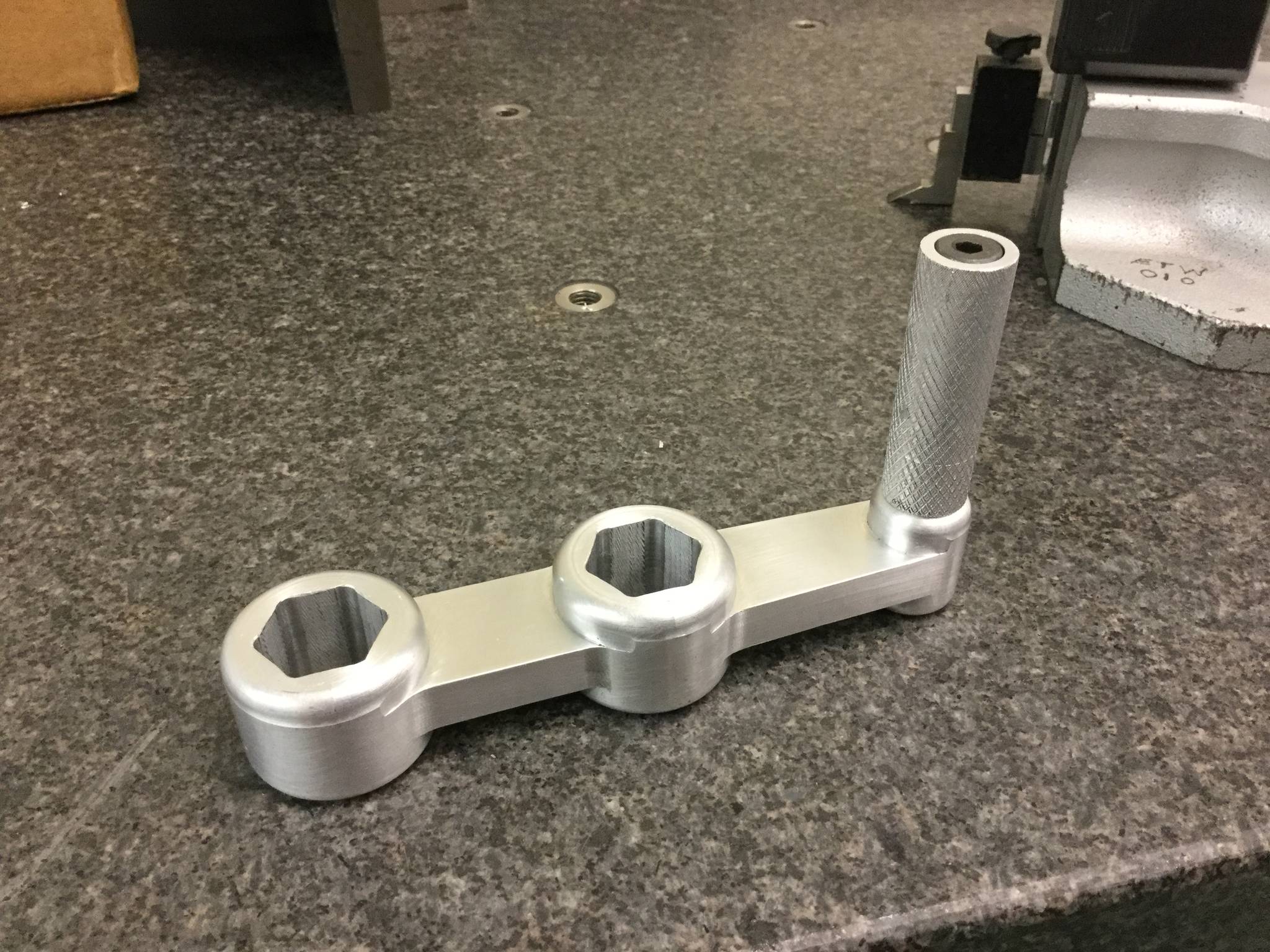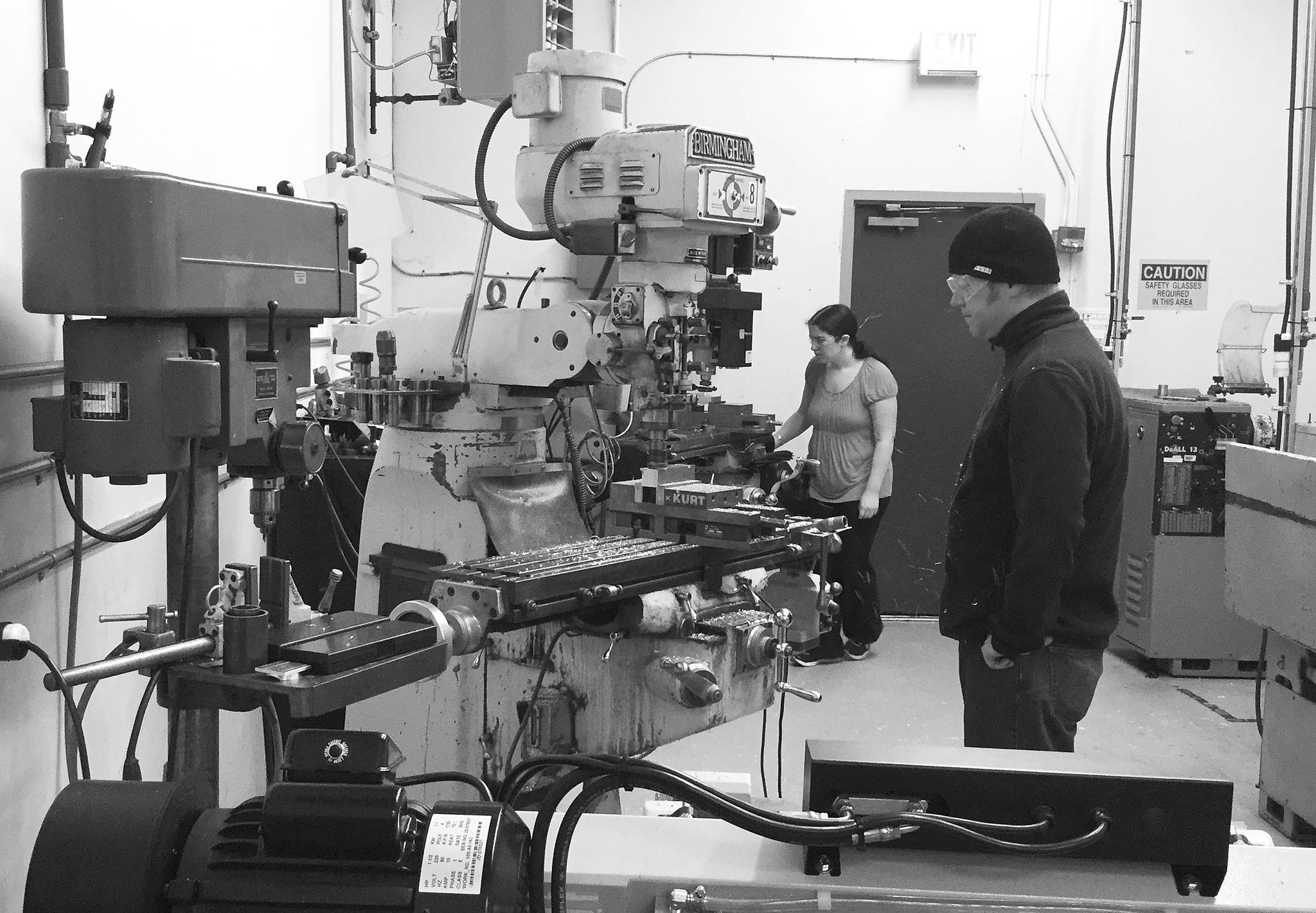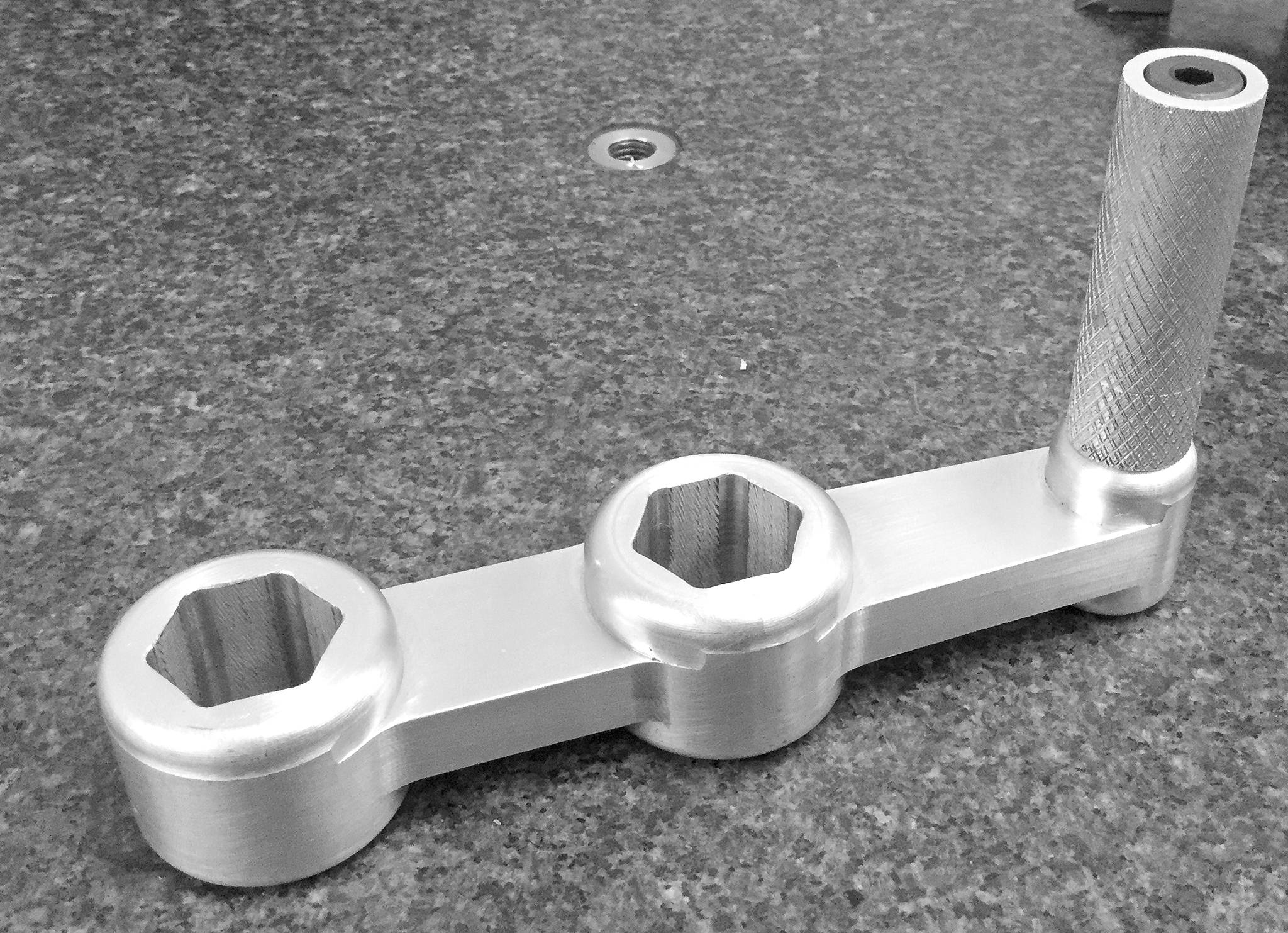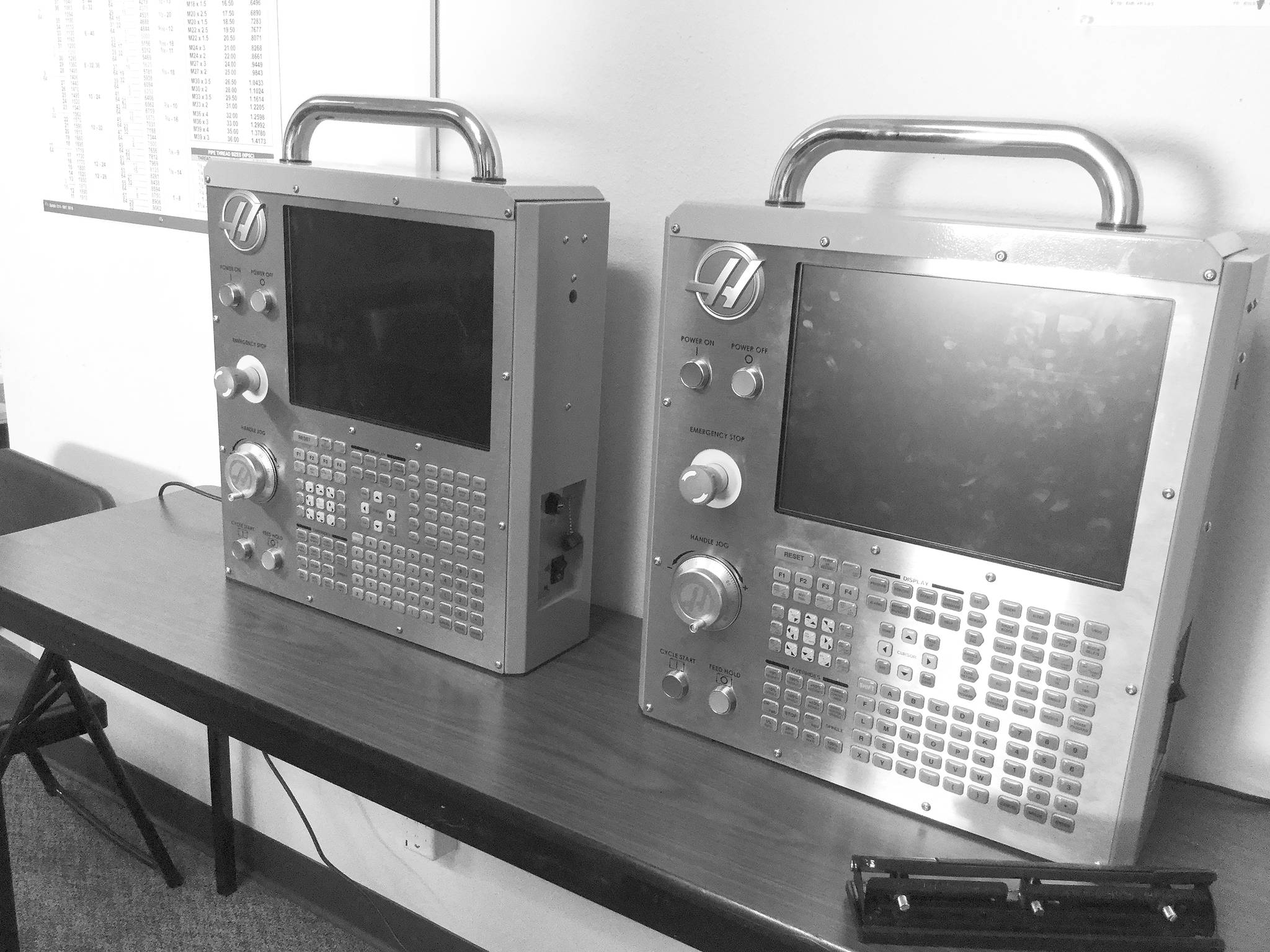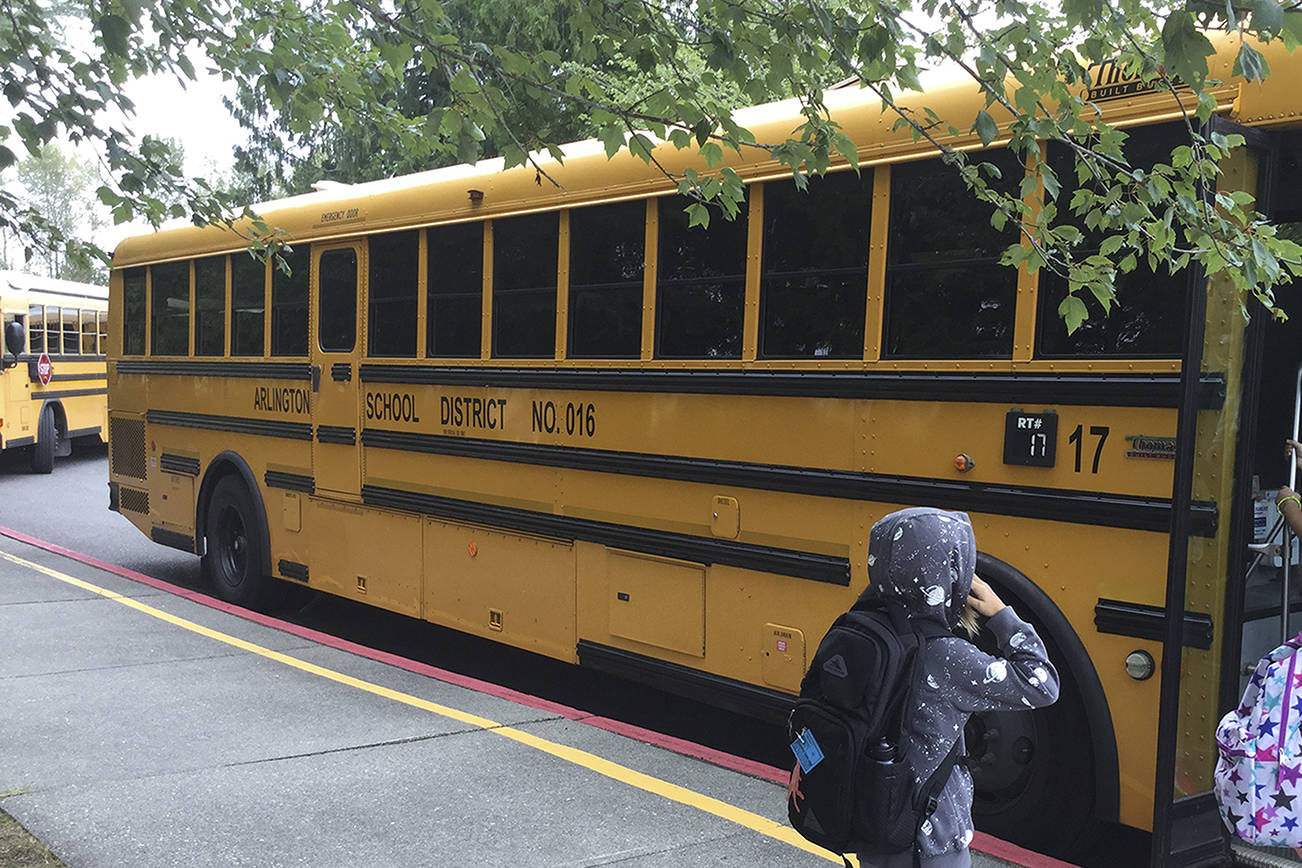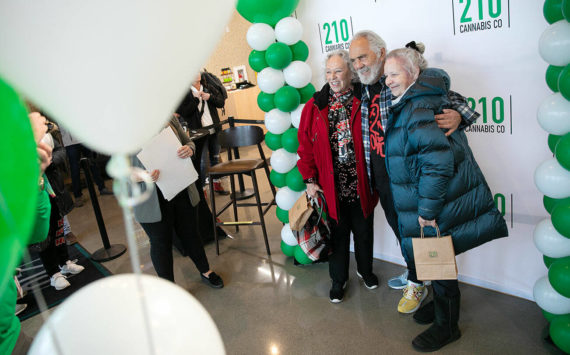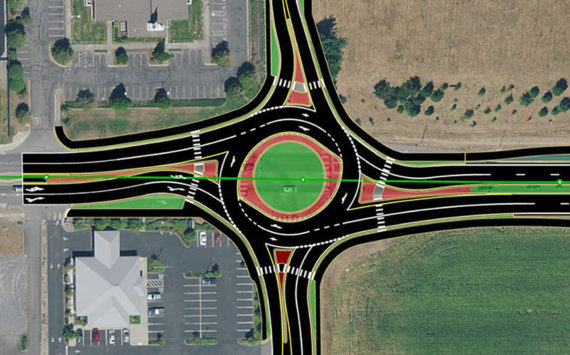ARLINGTON – Ashlyn Kientz wasn’t sure what she wanted in a career after graduating from Arlington High School two years ago. Maybe a welder or auto mechanic, but definitely something hands-on.
She learned about a pre-employment class through Everett Community College’s Advanced Manufacturing Training and Education Center (AMTEC) and became a Precision Machining student at AMTEC North in Arlington.
Now she works as a computer numerical control (CNC) operator at Universal Aerospace, also in Arlington, making component parts. She couldn’t be happier.
“I’m good at my job,” she said. “To do it right you need to be detail-oriented. Everything has to be accurate to measure, according to your blueprints; and, being in the shop I don’t mind getting dirty.”
Kientz is part of a post-Baby Boomer generational shift that is happening in the workplace nationwide, but is being watched particularly closely here in a region where the aerospace and manufacturing industries are thriving.
About 35 percent of Boeing’s manufacturing workforce in the Puget Sound are eligible for retirement over the next five years, or potentially 10,000 mechanics, said John Bonner, vice president of Corporate and Workforce Training at EvCC’s AMTEC program. And, almost half of Boeing’s Seattle-area machinists are over 50 years old.
Bonner said, “Boeing has a lot of planes that are on backlog right now and well into the future, so that’s a very promising line of business that we have in Snohomish County,” which is home to 240 supply chain companies, some of which are Arlington-based.
“There’s lots of business and a projected shortage of workers. That spells opportunity,” Bonner said.
AMTEC North connects students with the curriculum, training and entry-level skills for jobs in the aerospace and manufacturing industries.
Two years ago, EvCC, Arlington Public Schools, the city of Arlington, Economic Alliance of Snohomish County and other organizations joined to expand workforce training in the north county. EvCC is providing educational opportunities in Advanced Manufacturing, customized training for employers and employee professional development.
Bonner credited Arlington Mayor Barb Tolbert and schools Superintendent Chrys Sweeting for bringing together college and business leaders, and the school district, to lay a footprint for an advanced manufacturing training center in Arlington as a branch of the EvCC program.
“The mayor said, ‘Let’s do it,’ and thanks to the leadership and generosity of the school district, and Weston High School, we now have a small machining training program that we launched to train students in precision machining,” Bonner said.
Senior AMT, Absolute Manufacturing and Universal Aerospace, all located in the Arlington area, said they can’t beg, borrow or steal individual trainees, Bonner said. “They’re not competing with each other; they’re competing with Amazon.”
AMTEC training offers short, stackable certifications that build to associate’s and other college degrees.
“Precision machining in Everett, as a whole, nineteen students came out with a two-year certificate to get a job within ninety days of graduating, so the demand is really there,” Bonner said.
Sophie Jessup is an Instructional Technician who got certified through the AMTEC program. She enjoys teaching what she learned.
“It’s really great to see people’s metal,” she said, running a piece on the lathe that would soon become a wood-grain writing pen. “It’s just a random block, and to see somebody make something unique out of it is just amazing. Girls can do it, too.”
Instructor Jerry Becraft said, “She was a superstar. She still is,” and she should have no problem getting a job when she is ready.
His words proved prophetic. A few weeks later, Jessup accepted a position with Royell Manufacturing Inc. in Everett, an independent global supplier that manufactures structural components, kits and assemblies for the aerospace industry.
That’s the kind of employment outcome that fellow student David Soltero is hoping for in the next year or two. The AHS graduate living in Everett is taking the advanced class in the machine shop. He’s another “hands-on” person who likes working the manual milling machine and getting stock ready to put in the CNC to run off individual parts.
“I hope to get a manufacturing job somewhere close around here,” Soltero said. “Anything, and it doesn’t have to be aerospace. I’m most interested in just getting stock ready, and getting the machining parts down to what they need to be.”
Beyond the machining training, said Soltero, he learned more about the value of teamwork and problem-solving.
Becraft, now in his sixth year teaching, said the program is structured to be about 70 percent hand-on learning and 30 percent classroom lectures.
Students with no knowledge of machining become familiar with the milling machines and lathes, and use simulators to assist in their training before moving onto the CNC equipment.
The students also leave with a machined handle that they can take on job interviews that serves as a sample of their work and attention to detail.
Becraft said sometimes it takes more creativity than making airplane parts to peak students’ interest. Last quarter, students made metal mini-ten pin bowling sets and custom-engraved jewelry boxes for parents at Christmas to demonstrate their newfound skills.
As part of the process to entice AMTEC to Arlington, aerospace industry partners such as Senior Aerospace AMT played a role when it came time to set up shop, and have participated in roundtable talks to help guide the program.
“We collaborated on equipment necessary to launch the program, and how to lay out the machine shop,” said Matt Washburn, training manager with Senior Aerospace AMT, which employs 450. Washburn also teaches continuing education night classes in Machining at the site.
The company has also taken on a higher-profile role in community involvement. Visiting classrooms and hosting facility tours are part of the engagement, too.
“We saw the writing on the wall,” said Washburn, and the relationships have been beneficial.
Senior Aerospace AMT has hired a handful of AMTEC graduates, and state and federal workforce and training grants have helped get them on the payroll while helping the company’s bottom line.
Washburn said a Level 1 machine operator with no experience getting inside training may start out at $14 an hour, earn a $2.50 wage increase at Level 2 in short time, and top out at $33 – or $63,360 a year – for journeyman machinists, in line with what workforce experts consider a family wage.
If a prospective from a program such as AMTEC walks in the door with a certificate or has an associate’s degree with some manufacturing knowledge, they can earn a starting wage up to $4 higher than someone with no experience.
Washburn said the skills gap is evident.
Sharing his own example, he said that in December 2013, the company had 19 journey-level machinists; today they have six. Some of those machinists were promoted into mid-management, but the numbers reveal the state of supply and demand.
Becraft’s class size is typically nine students, but they’re working on boosting enrollment. They would like to be meet the capacity of 20 at Weston.
Ray Kubista, EvCC executive director of regional training, said Weston is an excellent locatio. As Boeing and the aerospace sector grow, they need suppliers, engineering services and other supportive partners in close proximity, and those are competitive advantages that make the Arlington area a solid place to be.
Arlington and Marysville are working to secure a Manufacturing Industrial Center regional designation. That plan would encourage north county development at Arlington’s airport industrial park as well as in the Smokey Point Master Plan area. The MIC has the potential to become the county’s second-largest, after Paine Field in Everett, which would put AMTEC North in an enviable position, officials said.
Ultimately, the college’s long-term goal will be to find a bigger, permanent site in Smokey Point to expand. “But first we need to get enrollment up and get the word out,” Kubista said.
“The goal over time is to meet the need (for individuals and the local job market), and have larger participation, which is going to take industry, the schools and all of us working together,” Kubista said.
